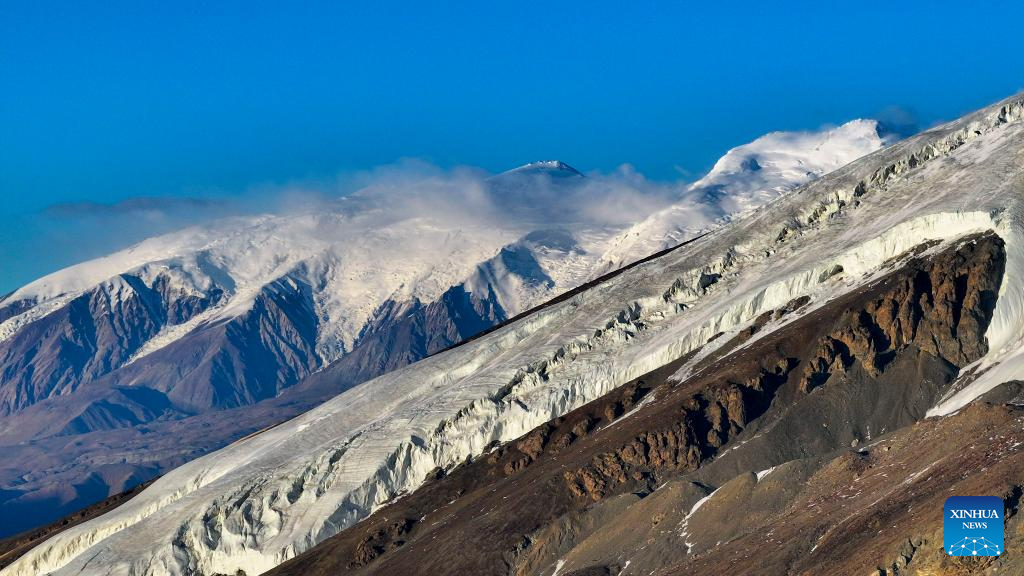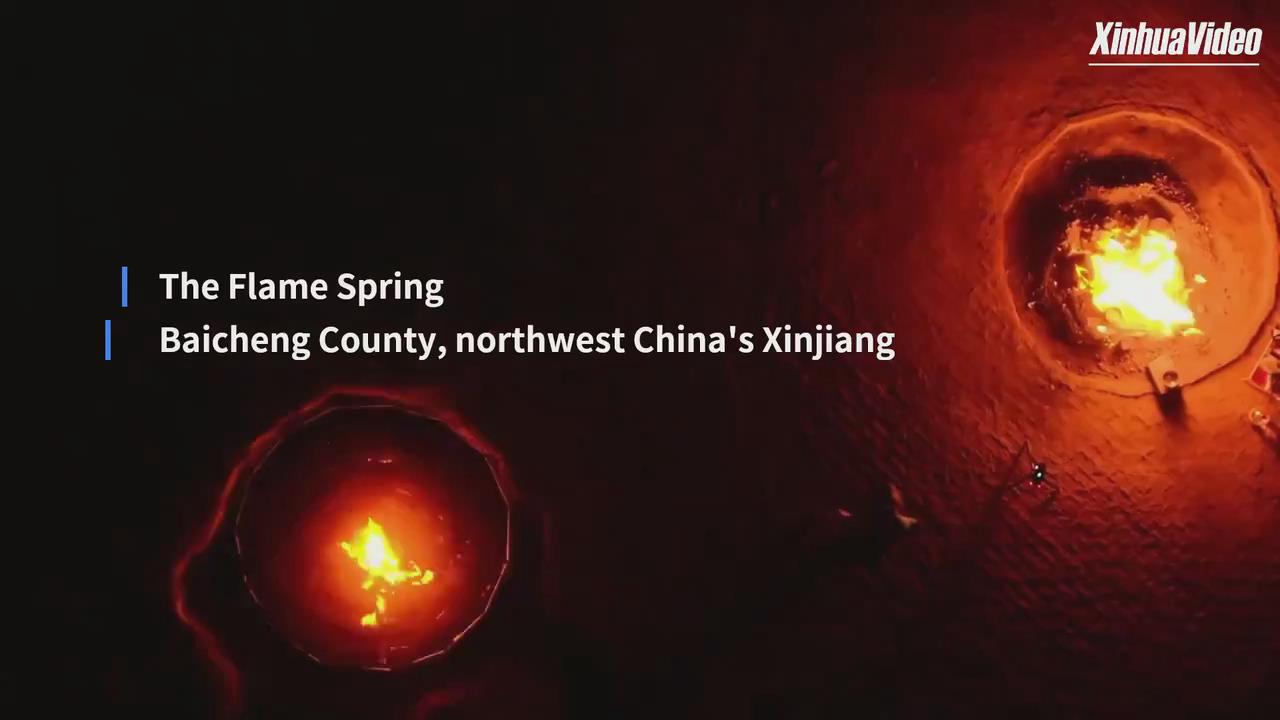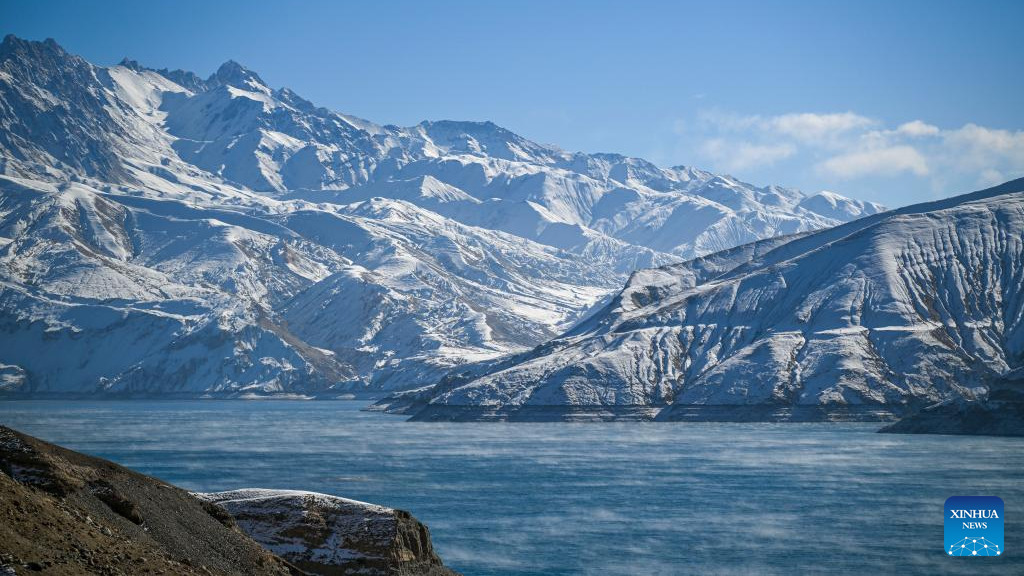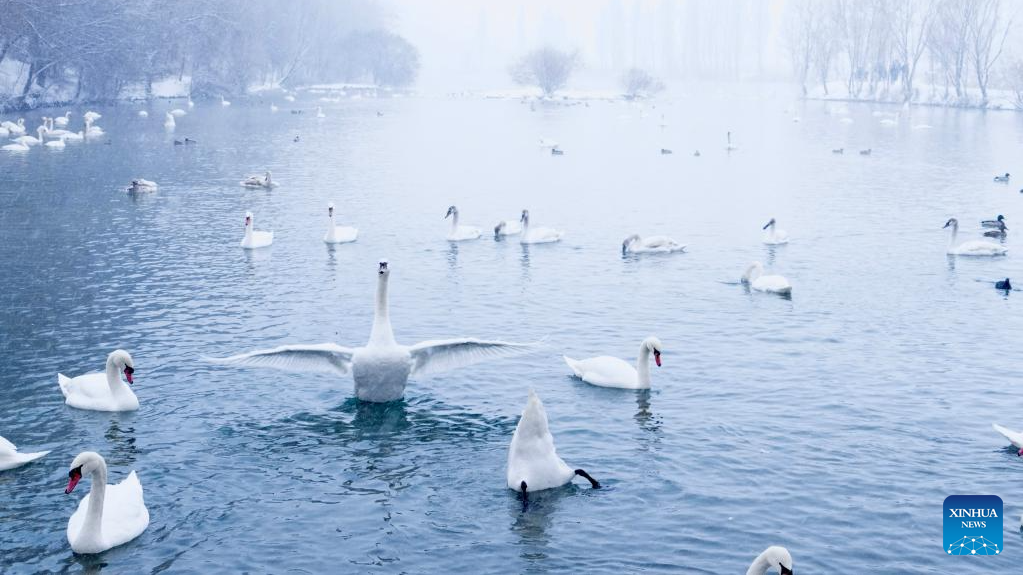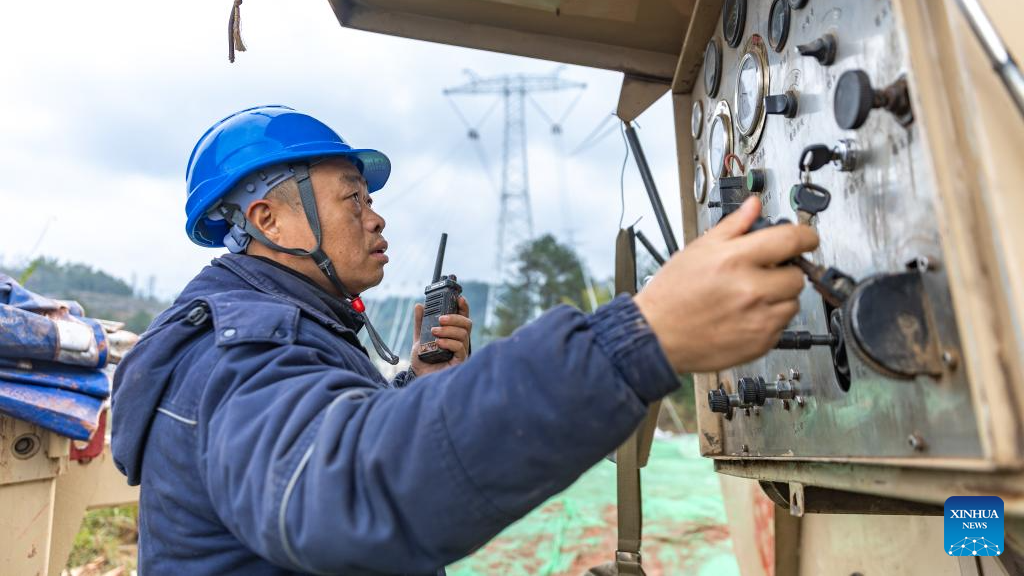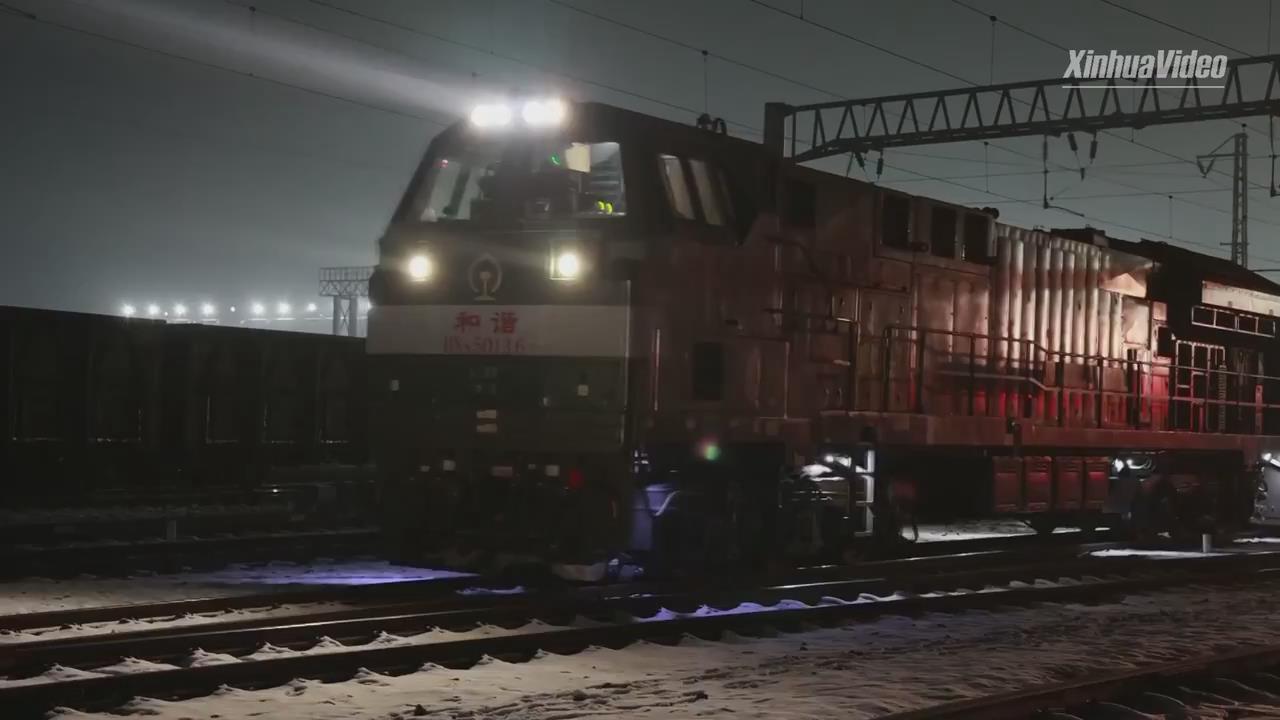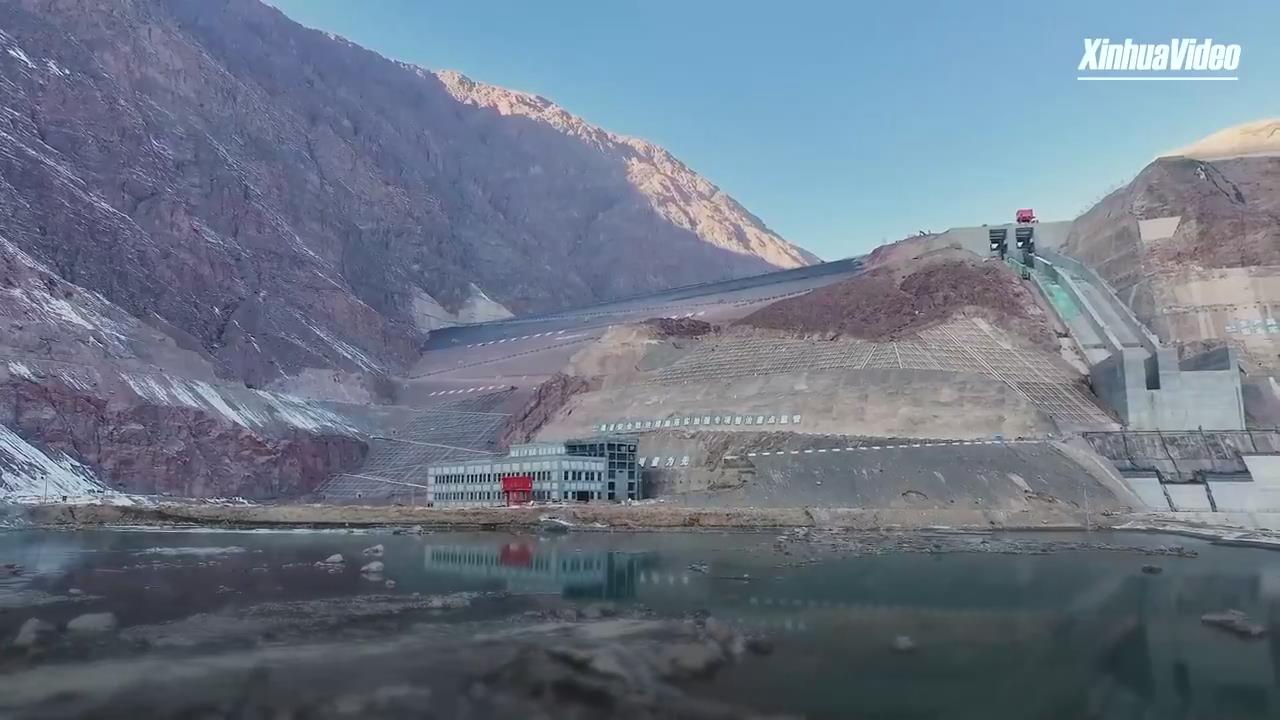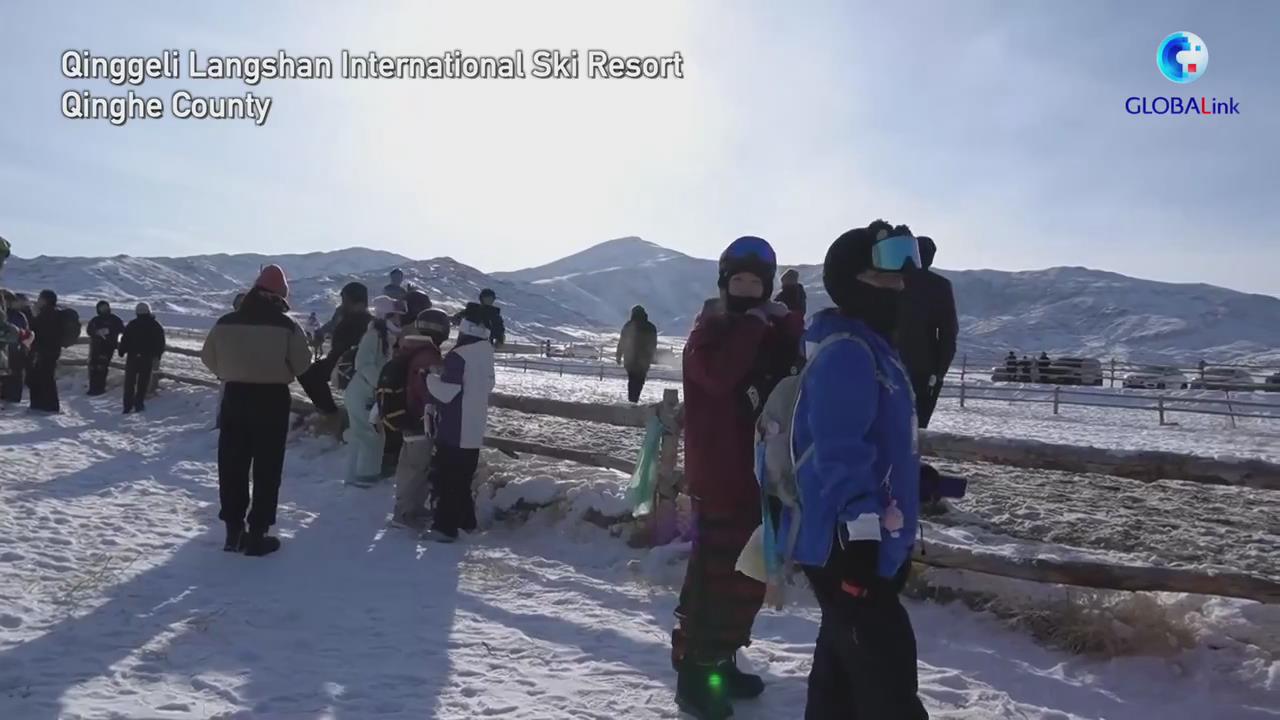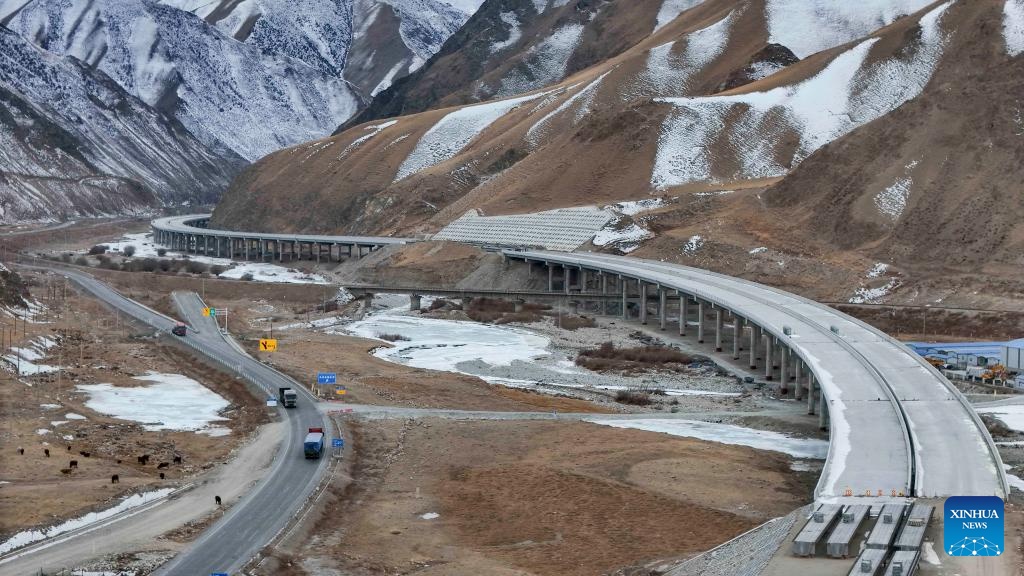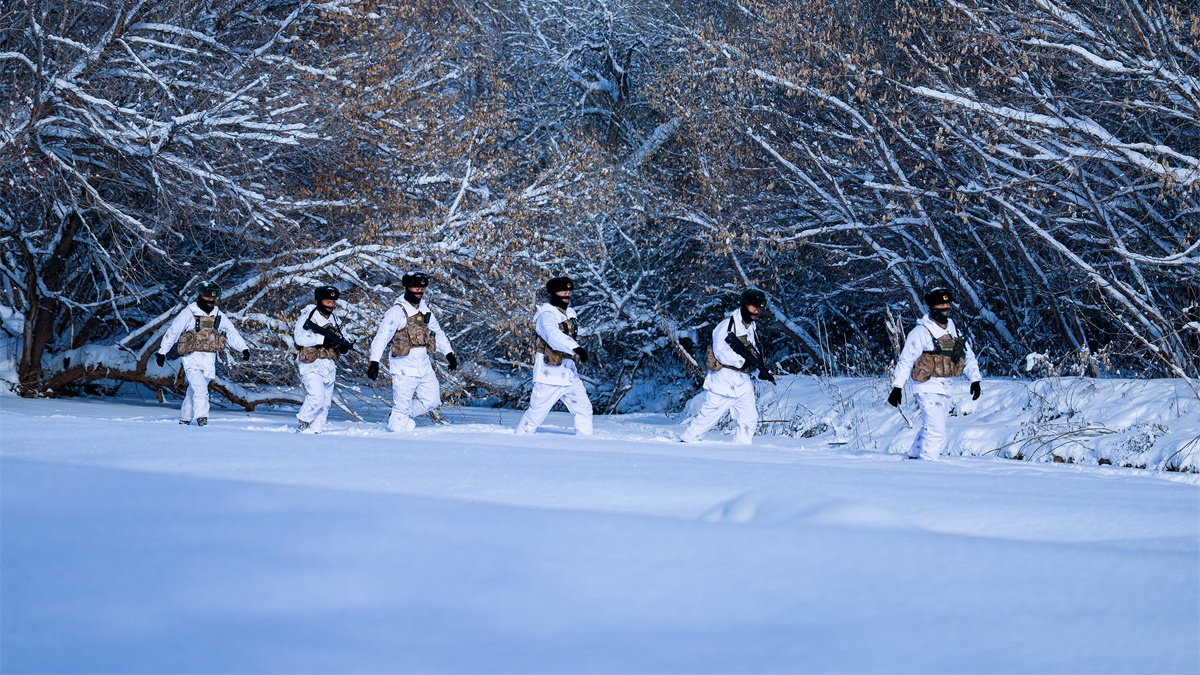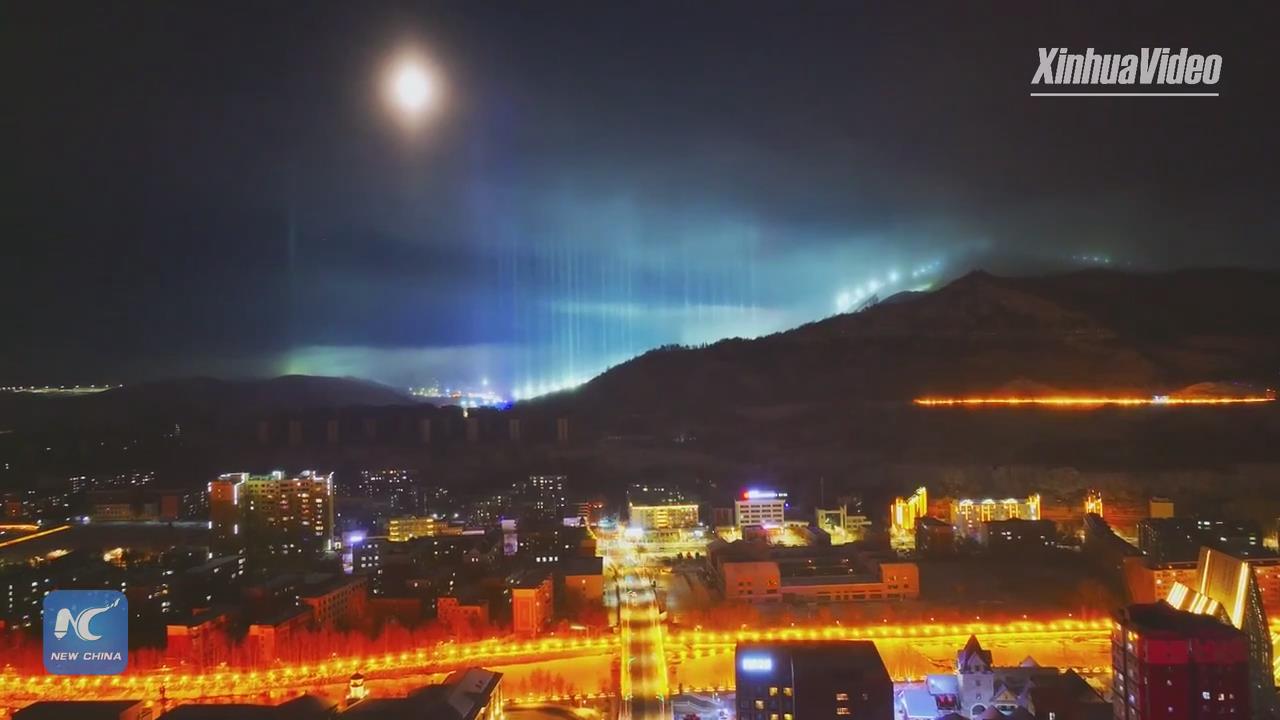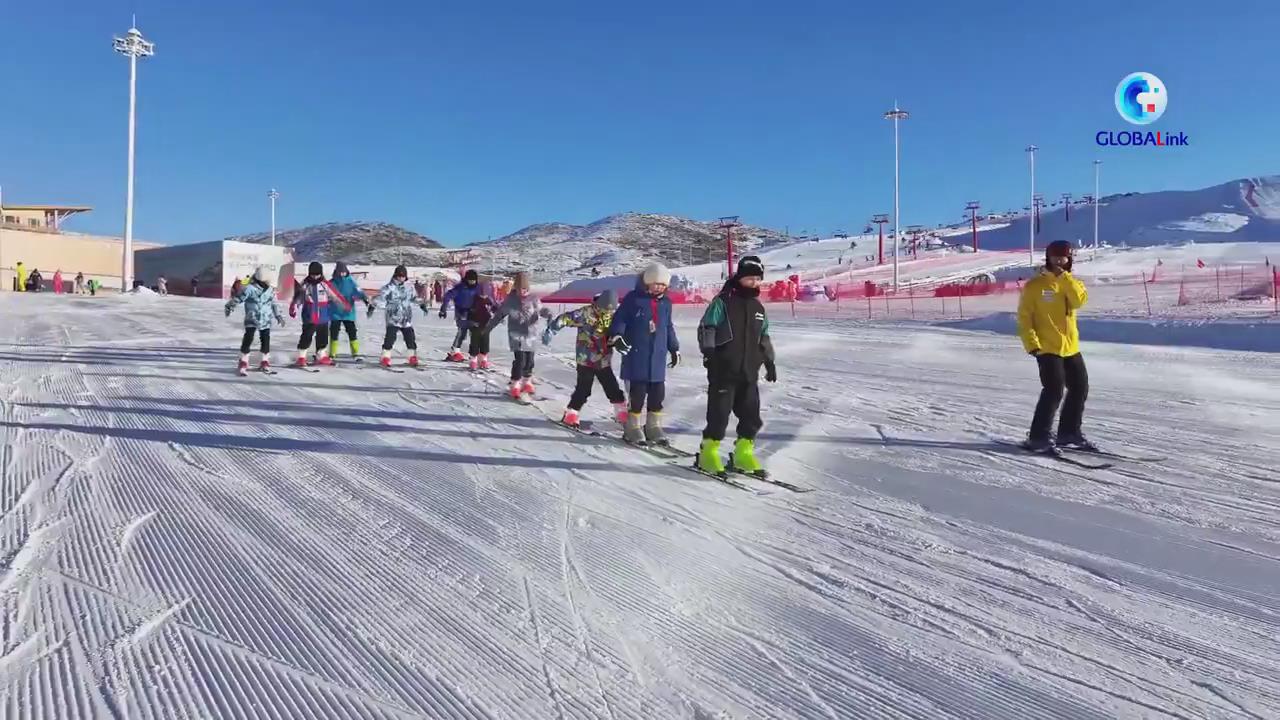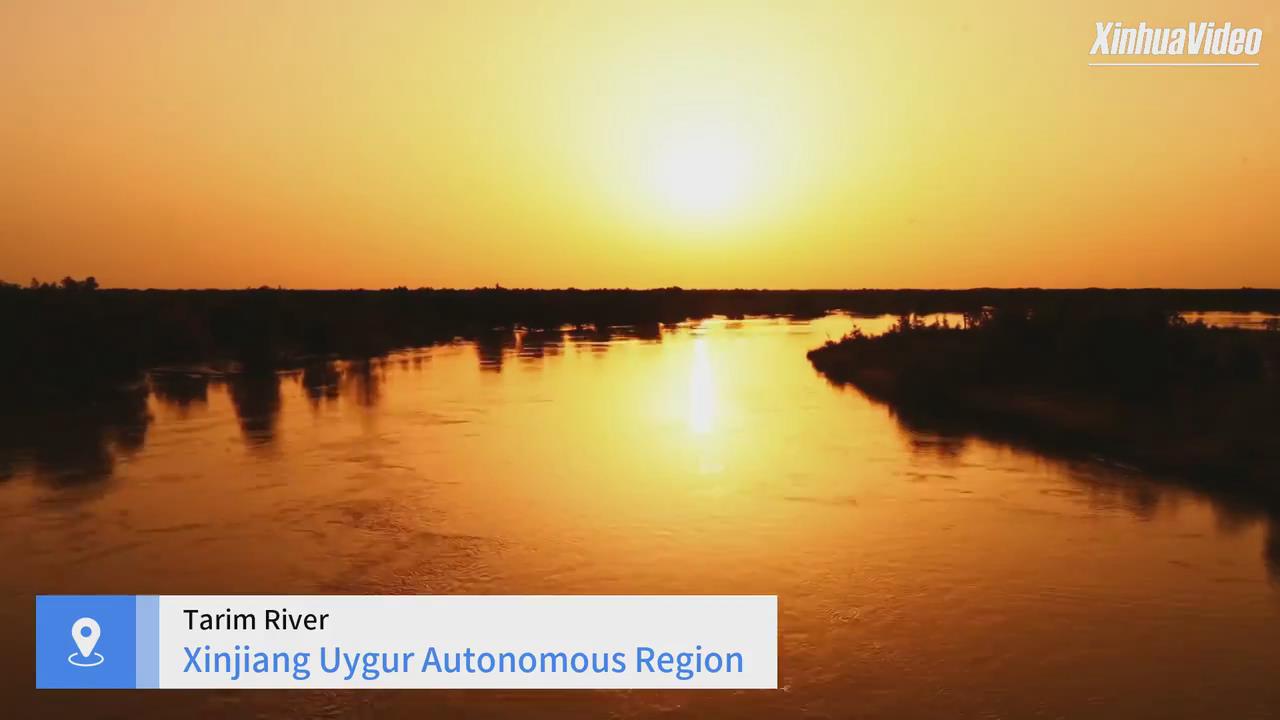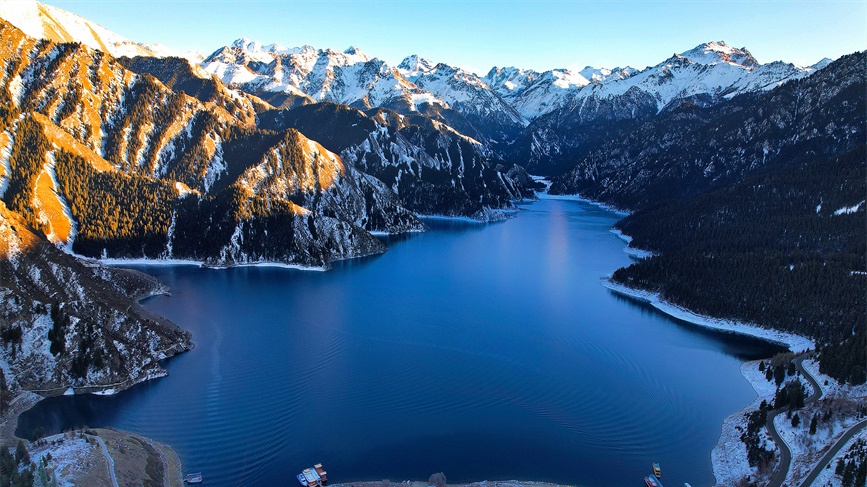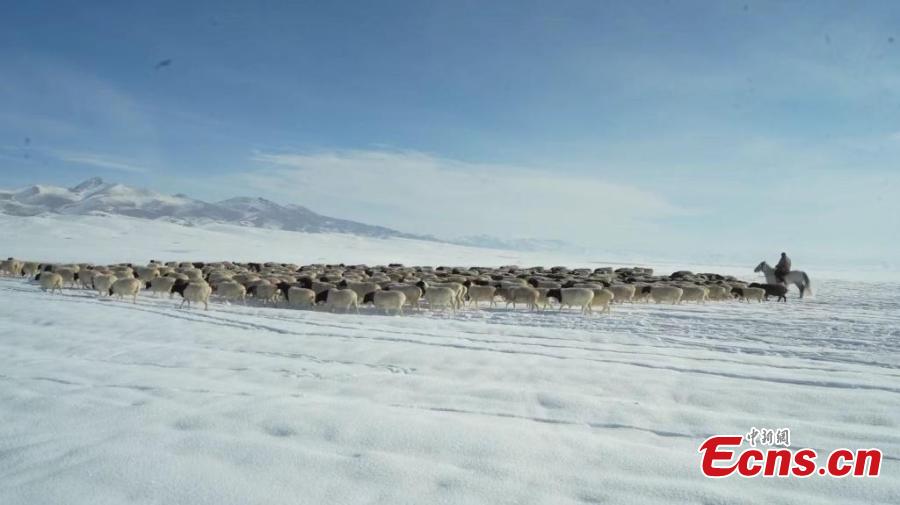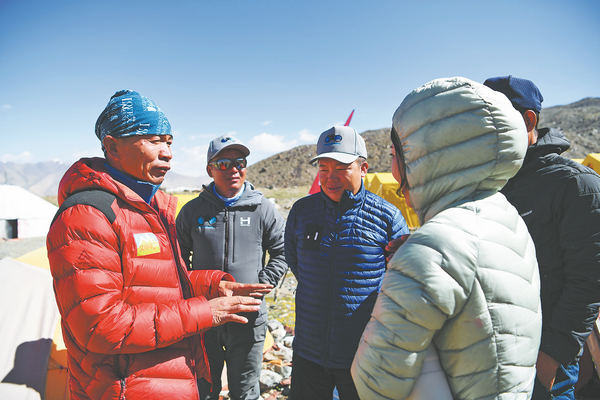
Li Yuan (left), a mountaineering guide, talks with climbing enthusiasts at the Muztagh Ata base camp on July 2. HU HUHU/XINHUA
For many visitors, Muztagh Ata, the "Father of Ice Mountains" in Xinjiang Uygur autonomous region, is appealing for its stunning scenery. However, for Li Yuan, the mountain vistas are both a passion and a purpose.
Situated at an altitude of 4,500 meters, the Muztagh Ata base camp has limited oxygen and basic amenities — just a few tents shaking in the wind and simple meals. Despite these conditions, Li, a seasoned mountaineering guide, finds immense joy.
"With its gentle slopes, Muztagh Ata is relatively easy to climb and is one of the most popular mountaineering destinations in Xinjiang. Some enthusiasts even consider it a sacred site for ski mountaineering," says the guide with the Xinjiang Mountaineering Association.
Every year since 2007, Li leaves his bustling city life behind between June and August to embrace the serenity of Muztagh Ata and welcome climbers from all over the world. The snowcapped peak has opened up new possibilities for him.
Before he became a guide, Li was working in the clothing industry but felt dissatisfied with life. "I had no way of making breakthroughs or improving myself," he says. He turned to outdoor activities for solace and came to realize that mountaineering could open up a wider and more passionate world and eventually, he decided to resign.
At that time, commercial mountaineering was just starting in Xinjiang. Then in his 30s, with neither funds nor a stable source of clients, Li had to start out doing basic jobs, such as working as a porter.
"In the beginning, I earned only 1,600 yuan ($220) a month and couldn't afford breakfast. I never imagined mountaineering would grow so much," Li says. "But I was content because it gave me more opportunities to climb."
These days, the 52-year-old sees mountaineering as much more than a sport. Even though he knows his routine by heart, he still analyzes routes and makes detailed plans for every trip.
"Everyone starts from scratch on the mountains. They have to fine-tune their skills to push onward. This challenging process changes your perspective on life," Li explains. "Mountaineering showed me that there are many ways to live and it's up to us to choose."
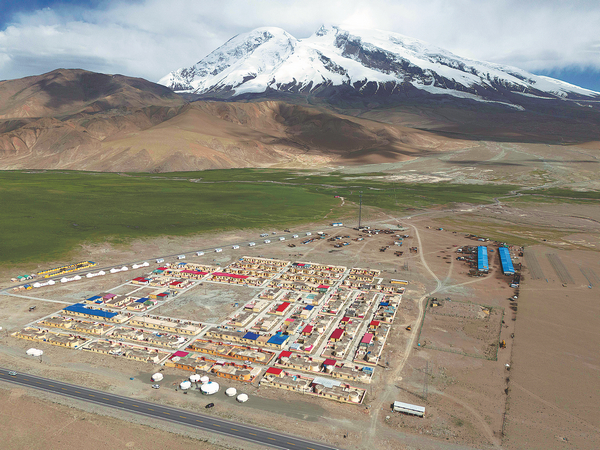
A village at the foot of Muztagh Ata in Aketao county, Xinjiang Uygur autonomous region. HU HUHU/XINHUA
Climbing has recently become more popular among young people in China thanks to social media platforms. Facilities at the Muztagh Ata base camp have also been upgraded. In the near future, a dedicated town with an estimated investment of 110 million yuan is set to break ground to enhance services and facilities.
As more and more youngsters get involved in the sport, Li is thrilled but remains cautious.
"Without the short videos on social media, mountaineering wouldn't be this popular. But the sport requires respect for life and nature," he says. "Muztagh Ata poses significant challenges in terms of hypoxia, intense UV radiation and low temperatures."
As a native of Xinjiang, Li hopes the region's climbing resources will be fully utilized to inspire more people to take up the sport.
"Xinjiang has plentiful options but it is not at the forefront of popularizing mountaineering. Compared to wealthier provinces and cities in the east, fewer people here participate in the sport," he says. "Even if one day I'm no longer able to continue working in the mountains, I will be happy to see others take up the mantle."


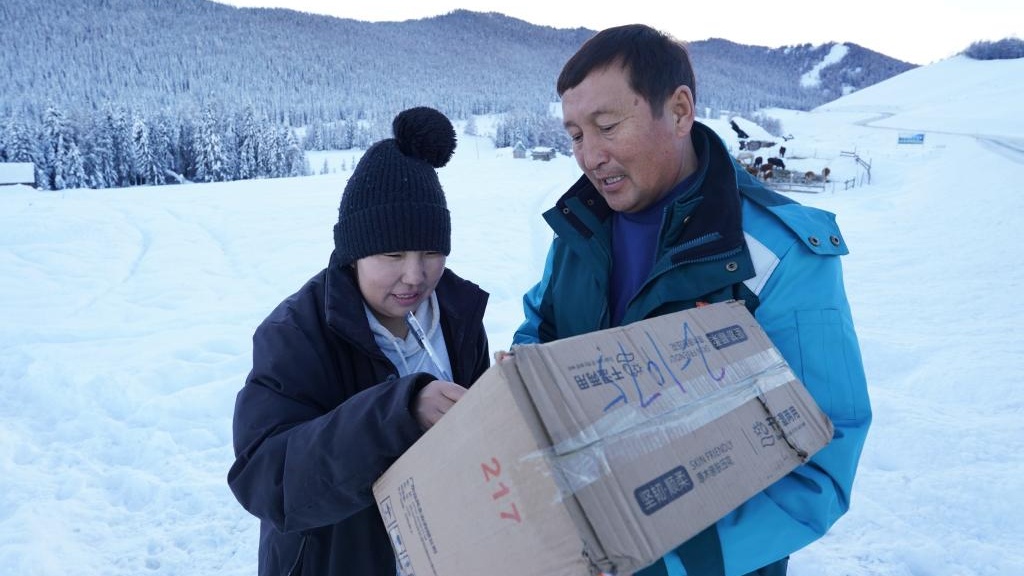
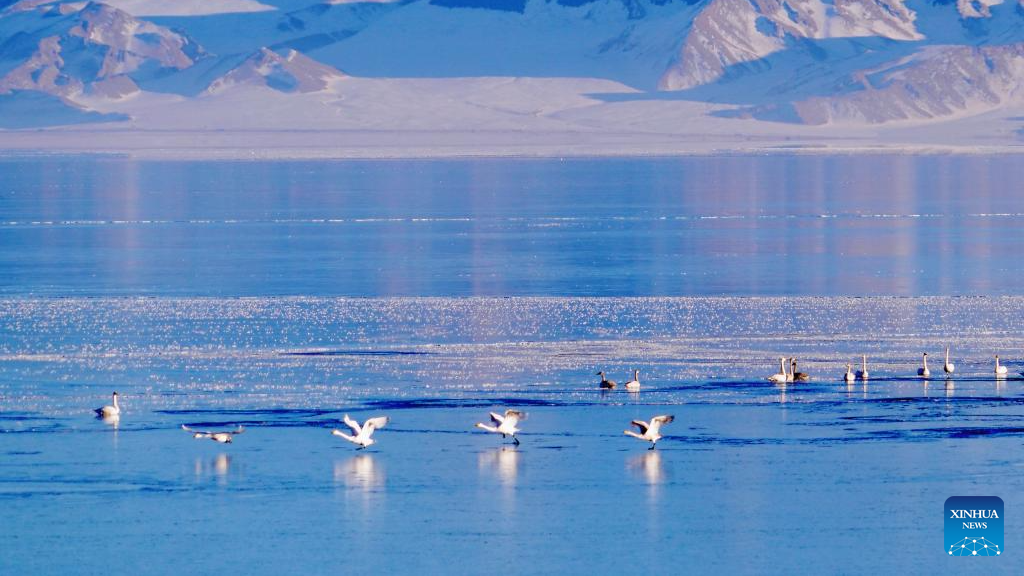

.png)
